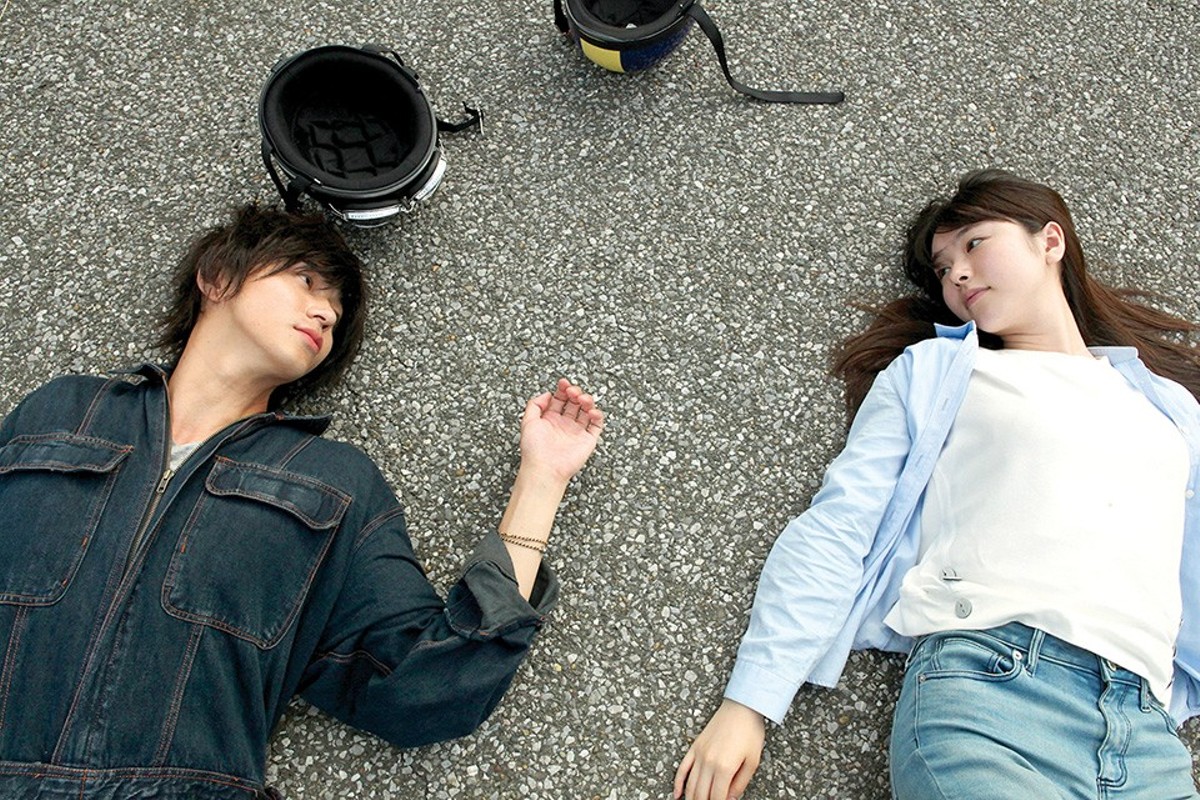A wonderfully erratic spirit guides Ryûsuke Hamaguchi's multifaceted new film, an esoteric sense of freedom that pulls it through the conventions of a romance but never quite allows it to comfortably settle on generic rules. As contradictory as it sounds, it's both timeless and conspicuously, designedly contemporary. Its heroine is almost unconsciously shaken by the world she lives in, and the film frequently steps back to provide overviews of the landscape, urban and otherwise, that seems to overpower her. (According to the director, these images are also reminders of the disasters — an earthquake, a tsunami and the Fukushima nuclear accident — that shook Japan in 2011.) She's a modern girl but an uneasy one, and the balance tells us much about the way we live now. I'd suggest that Hamaguchi sums it up in a single image late in the film: a smart phone dropped from a car window.
The story, a slim one, is this: Asako (Erika Karata), a young woman in Osaka, falls in love with Baku (Masahiro Shigahide), a brash, rebellious DJ. Baku, prone to sudden absences, abruptly disappears. Two years later, Asako relocates to Tokyo and meets Ryôhai, a cautious, career-driven fellow who happens to be the exact image of Baku, other than a different haircut and business clothes. It's almost inevitable that they will become a couple, but Asako is reluctant, even unnerved. Is she in love with Ryôhai or simply holding on to the memory of Baku?
The theme of duality obviously suggests Hitchcock's Vertigo (and is possibly echoed in the original Japanese title Netemo sametemo, which can be translated as "when asleep or awake"), but Hamaguchi takes a lighter approach, one that more closely recalls the thoughtful romantic studies of Éric Rohmer.
Like Rohmer's frequently dissatisfied heroines, Asako is perplexed by the psychological state of being in love, of seeing herself in someone else yet also always examining the relationship from a distance. As the film progresses and the relationship becomes more complicated, she questions her own personality even as she begins to assert herself. Are there two Asakos, as the title suggests, psychological complements to Baku/Ryôhai? She's self-aware and even enigmatically self-centered, but Hamaguchi seems to suggest that this is an inevitable part of self-consciousness.
There's an absorbing sense of restlessness to the film as Hamaguchi, best known for his five-hour improvisatory Happy Hour, allows both cast and story to meander freely. It's a psychological drama when necessary, a hint of a Henry James ghost story when the director feels like shaking things up — a melodramatic tale of jilted love, suppressed passions and regret given a slightly icy twist. Yet all of the loose ends and cut corners add up to a complete image of life and love that is both timeless and ruthlessly of the minute.






